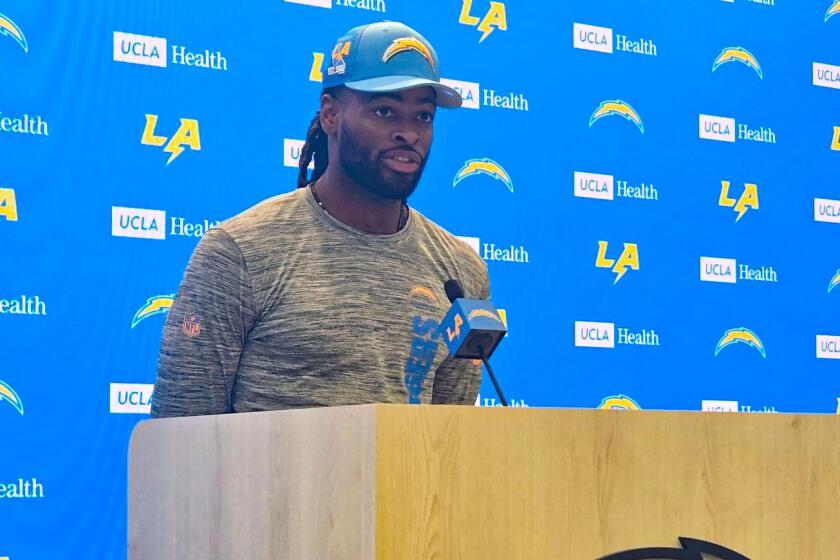Anschutz May Be Too Public for His Liking
- Share via
Once one of the richest Americans you never heard of, Philip F. Anschutz has been getting so much publicity this year for his sports, entertainment and telecommunications holdings that he’s in danger of becoming a household name.
For Anschutz, who hasn’t talked to the media in two decades, that may be worse punishment than turning over the $5 million that the New York attorney general says Anschutz earned on allegedly sweetheart stock deals awarded to him by brokerage Salomon Smith Barney.
In a lawsuit filed Monday, Atty. Gen. Eliot Spitzer contends that Anschutz, founder and former chairman of Qwest Communications International Inc., and four other telecom executives reaped millions of dollars on shares of hot new public companies they received in return for giving Salomon lucrative investment banking work. The 62-year-old Anschutz, through a spokesman, denied any wrongdoing.
Through three companies, Denver-based Anschutz controls more than 100 investments in a variety of businesses--telecom, technology, oil, real estate, sports and entertainment.
His holdings have made Anschutz worth $4.3 billion, according to Forbes magazine, which recently ranked him as the 36th-richest person in the nation.
In Los Angeles, Anschutz is primarily a sports mogul: He owns Staples Center and the Galaxy soccer team and is part owner of the Kings hockey team and the National Basketball Assn.’s Lakers.
His Anschutz Entertainment Group also is the developer and operator of the $130-million Home Depot National Training Center, a multi-sports complex set to open in June on 85 acres on the Cal State Dominguez Hills campus in Carson.
Anschutz also is a force in Hollywood. He bought three bankrupt movie houses, including Edwards Theatres Circuit Inc. in Newport Beach, and took the operation public this year as Regal Entertainment Group.
But for all his high-profile maneuvering, Anschutz has long been a very private person.
The last time he gave a news conference was in the early 1980s when he tried to persuade the city of Denver to build a convention center on his property instead of on the site the city had settled on, said Jim Monaghan, a political consultant and sometimes spokesman for Anschutz. The resulting brouhaha led the city to build on a third site.
Those who dislike Anschutz say he is opportunistic and not civic-minded or generous with charitable contributions. But even leading businesspeople request anonymity before criticizing him--partly because many hope to do business with him.
His privacy has allowed friends and business associates to portray a man who is tenacious and forceful, yet quiet and rarely ruffled, even in the most intense business discussions. After a long and somewhat bitter campaign for the Denver convention center failed, Anschutz was disappointed but moved on quickly to work on other deals, Monaghan said.
Anschutz bought the small Denver & Rio Grande Western Railroad in 1984 and took control of the Southern Pacific Railroad four years later, merging the two. The railroad gave him wide-sweeping rights of way to lay fiber-optic cable. He sold most of the rail operation to Union Pacific Railroad, keeping a 5.4% stake and the fiber-optic network. He later spun off that network as Qwest and took it public.
More to Read
Go beyond the scoreboard
Get the latest on L.A.'s teams in the daily Sports Report newsletter.
You may occasionally receive promotional content from the Los Angeles Times.










